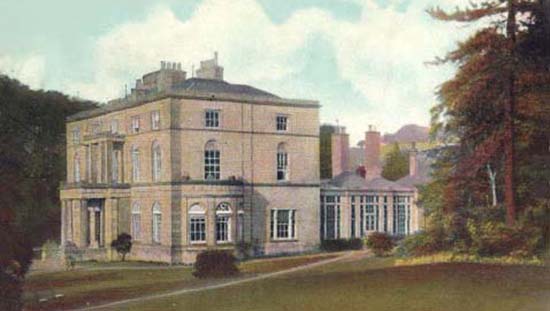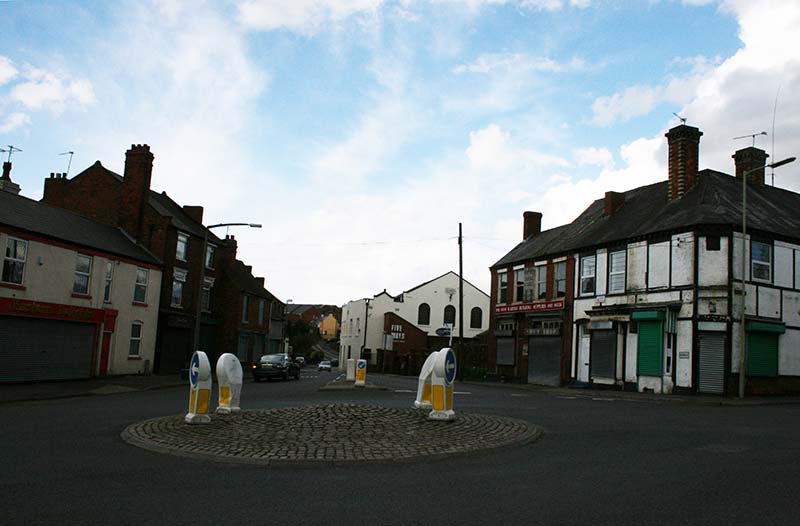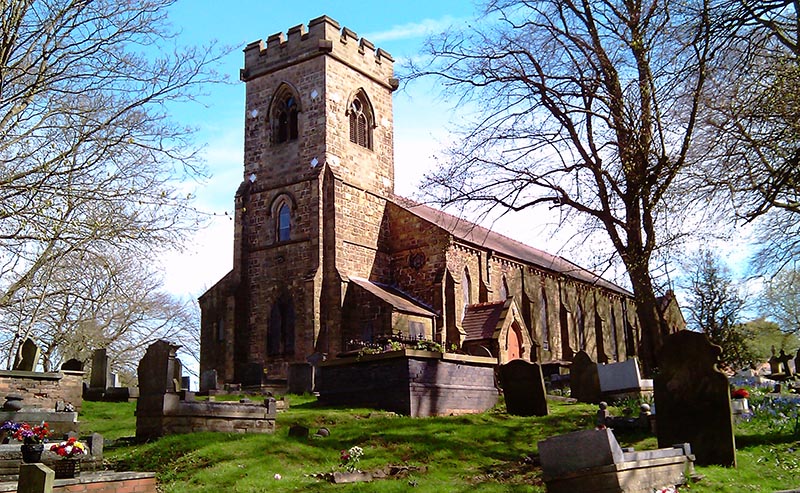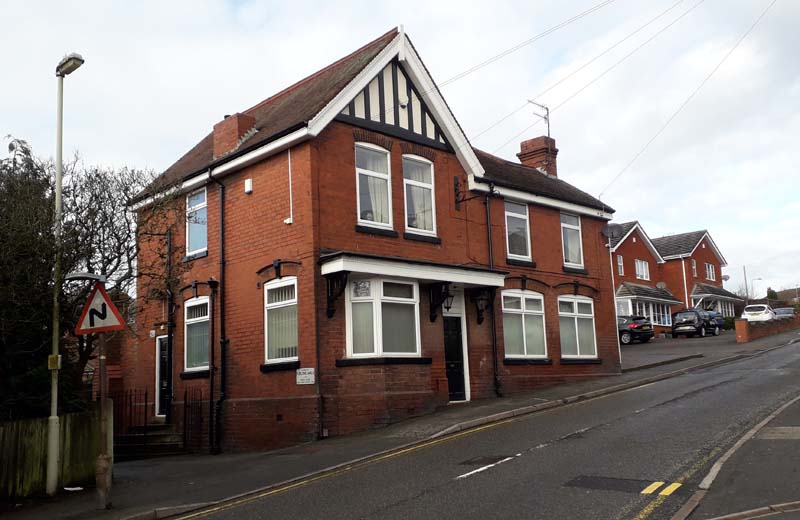
|

|
||
|
Landmarks ~
Churches ~
Pubs ~
Shops ~
Amenities ~
Dwellings ~
Events ~
Schools ~
Sports
Industrial ~ Transport ~ Folklore ~ Families
~ Families and People ~
Gornal's Famous
John Turton Fereday ~
John Lloyd Gibbons ~
George Kirby ~
James Yates Rooker ~
John Johnson Shaw
Theodosius Theodosius ~ Ruiton Travellers ~ Singing Miners
James Yates Rooker
(1812-1887)
Vicar of St. James, 1848 - 1887
James Yates Rooker was the son of
Abel Rooker born on 27th February 1812, a surgeon from Darlaston,
his first marriage in 1811 with Susannah Brevitt.
James Yates Rooker was the eldest of their five children together.
Abel remarried in 1818 after his first wife Susannah died.
With his second wife Frances Fletcher they had a further six children.
Frances died in 1853, after which Abel went to live with
his son James at the Vicarage in Lower Gornal where he had already
taken up residence. Abel Rooker died April 18th, 1857.
Of the marriages and eleven children, three of Abel's sons became clergy, including Rev. William Yates Rooker, first incumbent of St Marks, Darlaston who died 14 Sept. 1869 and is buried at St James.
James Yates Rooker was educated at St Catherine's Hall, Cambridge.
James following his fathers occupation, qualified L.S.A. [Licence of the Society of Apothecaries] in 1833 and became a practicing surgeon.
By 1841 James had joined the clergy and was presiding over a
church and school in Bamford near Hathersage, North Derbyshire.
He was ordained deacon in 1845, and ordained priest at Lichfield in 1846.
It is rumoured, that during his time at Bamford, that he had met and proposed marriage to Charlotte Bronte, her dear friend Ellen Nussey was the Vicar's daughter in the neighbouring village, correspondence between the two ladies exists which suggest this, however his attentions were rejected by Charlotte.
The Earl of Dudley, Lord Ward of Himley Hall appointed James Yates Rooker as incumbent
of St James's Church, Lower Gornal in 1848
The Reverend Rooker held this post until his death, he also served as a Justice of the Peace for Sedgley in his last twenty years. At this time John Birch was installed as curate of St James.
James Rooker married Sarah Anne Allen from Norton, Staffs
in 1847, they had five children.
Their eldest daughter Emily was born in 1849, she married Thomas William Dalton Gould in 1869, Gould was a solicitor living at Petworth House in Church Street just across the road from the Vicarage, Emily died 17 April, 1919. Ellen b1851, married Archibald Paul Brevitt at St. James', Lower Gornal in 1882, Brevitt was an Architect & Surveyor from Darlaston, he died in 1899 and is also buried at St James. James, born 5 September, 1850, he died 22 December 1859 only nine years old. Mary Harriet b1853 William Frederic Yates b1858. The Rooker family lived at The Vicarage located at the top of Summer Lane.
An attempted murder in 1879 left the Vicar in poor health, the full story of this
incident is included below.
James Yates Rooker died on 15th March 1887, and his wife Sarah Anne died a year later, both are buried in the family vault at St James' Church, Lower Gornal.
Also buried in the vault is James' clergyman brother, William Yates Rooker who died in 1869
and the subject of a local scandal when living in Gornal - [see "Divorce of a Clergyman's Wife" below]
His father, Abel Rooker is also buried in the vault.
See also:- His address to the poor of Gornal in 1878.
~
A Murderous Outrage in Lower Gornal
The Attempted Murder of James Yates Rooker, Vicar of Lower Gornal. 1879 It was Friday, 8th of August 1879, around ten o'clock in the morning in a remote Black Country village, Lower Gornal was a small close-knit community of miners and nailers in South Staffordshire, a cluster of shops situated at the Five Ways or 'Green' as it was known locally, was the central point of the Village and the scene for an outrage that would reverberate around the country. Charles Hartland was seemingly a respectable man, a 46 year old Stone Merchant and Quarry Owner of Ruiton in nearby Upper Gornal, although in recent times he had found himself in a poor financial state.
James Yates Rooker was incumbent of St. James' Church, Lower Gornal
and also a magistrate for the County of Stafford, he often sat on the Bench of Magistrates at Sedgley.
Although on the outside all appeared well between Reverend Rooker and Charles Hartland,
the two gentlemen were friends and Hartland served as leader of the choir at the church
for many years.
Recently Mr. Hartland seemed to be in a very sullen state and had been seen lurking
about the district, quietly threatening harm to both James Rooker and also to
Mr Thomas Gould of Petworth house in Church Street.
Charles Hartland was now a man enraged, he had threatened both the Reverend Rooker
and Thomas Gould in the past.
Hartland was heavily in debt and earlier that very morning, the bailiffs had visited his house in Ruiton with the intent of selling-off furniture to pay off debts owing.
That fateful morning in August, Charles Hartland had been talking to Grocer
Jabez Addenbrooke in Church Street for a few minutes before he continued on
to Mr. Addenbrooke's shop on the Five Ways.
Here unwinds Hartland's wicked plan to wait for the Reverend with intent to confront and harm him.
That morning, the Vicar walked across the road from the Vicarage nearby in
Church Street and went shopping on the Five Ways.
Mrs. Bird, the wife of Benjamin Bird of Ruiton, was visiting her sister
Mrs. Addenbrook at the grocery shop at the time.
Mrs. Addenbrooke left the shop and Charles Hartland appeared to linger about.
What no one knew was that there was menace in Hartland's eyes and after they had briefly spoken,
the Reverend turned to make his way out of the shop door.
Mrs Bird, aware of what was happening, had left the parlour and rushed into the shop
and tried to assist Reverend Rooker as he staggered out.
At this point other local people had rushed to the scene and the Reverend Rooker was assisted back to the Vicarage just across the road and the doctor was sent for. A crowd of people had gathered and were shouting after Hartland as he strode along Ruiton Street; "Stop him"; "..he wants hanging"; "he's shot Mr. Rooker" and some of them followed after him. As Hartland passed by The Chapel House pub about fifty yards along Ruiton Street, someone again shouted "Stop him!" to which Harland calmly replied "I don't want stopping; I'm alright now".
Police Constable Wright, who was in his garden next to the Police Station
in Ruiton, had heard the commotion.
The Constable took him into custody at the Police House, where he arrested him.
Dr. Thomas Walker, who lived at Prospect House in Upper Gornal,
was Medical Officer of Health for the Sedgley Board.
The bullets appeared to be lodged in the Mr. Rooker's head, the reverend gentleman was found to have one bullet which had gone into the roof of his mouth, one above and behind the ear, and a third one near the carotid artery. Doctor Walker gave little chance for his patient's survival and expected that the wounds he received would likely prove fatal. During this time Reverend Rooker, although weak and had lost a lot of blood, remained conscious and perfectly sensible.
At the hearing, Solomon Nock, a gardener who had in the past done work for the
Reverend Rooker, said that about twelve months previous to the incident,
he was in 'Mr. Pattersons', The Waggon and Horses public house in Ruiton Street
The night before the shooting, Thursday the 7th of August,
Charles Hartland who had been in his capacity as choir leader at St. James Church,
had visited the Reverend's vicarage in Church Street after the service.
A few days after the shooting, Hartland admitted that the two undischarged
chambers in the revolver were reserved for Reverend Rooker's son-in-law
Thomas Gould.
On Saturday, 10th August, the day after the incident, Charles Hartland was
charged at Bilston Police Court with shooting James Yates Rooker with
intent to murder him.
At the Court the defendant was asked if he had anything to say, he replied "No" and appeared rather nonchalant. The following week, on the 19th August, Hartland was removed to Sedgley where he would be remanded for trial at Stafford Assises. Although some had questioned Charles Hartland's state-of-mind at the time of the shooting, he was passed as sane by a prison doctor during his remand in Stafford gaol.
On the 7th of November, at Staffordshire Winter Assises,
Charles Hartland was indicted for the felonious wounding of
Reverend James Yates Rooker with the intent of killing him.
Reverend Rooker had great difficulty attending the trial, but did plead leniency for his once friend, despite having Hartland's bullets still in his head, including one lodged in his brain. After the trial, a local petition was sent to the Home Secretary to get Hartland's sentence reduced, but this was rejected. The incident at Lower Gornal was widely reported around the country and the cold-blooded attack on the Vicar caused great outrage.
After a couple of weeks had passed, it was with great relief that the
Vicars health had improved to an extent that he could again be seen in public.
The Reverend Rooker was still in the care of Dr. Walker,
despite rumours that specialist surgeons would be called to attempt to remove
the bullets from his head.
Dr. Walker continued to attend him and the Reverend maintained that the local practitioners were responsible for his miraculous survival and recovery and that he had great faith in them.
On Sunday the 14th of December, 1879 the Reverend Rooker officiated for the
first time at the morning service at St. James' Church and preached
his first sermon since the incident.
The Reverend James Yates Rooker eventually recovered from his injuries
to live on a few years more and continued as Vicar of St. James The Great.
What about the Hartlands?
His father, Joseph Hartland was a builder, and in 1851 the family was
living at Tower Street, Dudley.
Charles Hartland married Elizabeth Wallens from Penn, and they were married at Sedgley All Saints in 1860, they lived on Dudley Road, Upper Gornal in 1861. Census
1864: Bankruptcy Notice, London Gazette April 19.
In 1871, Hartland was living at the 'Swan Inn', No. 1, Mount Street, Upper Gornal.
What of Charles Hartland?
Not much has been discovered as to what happened to Charles Hartland after his conviction.
His wife Elizabeth was living in Clarence Street, Upper Gornal in 1881, with their children, Charles Henry and daughter Louisa, who was now 17 years old. ~
In 1863, some years before the above events, The Rev. James Rooker was also in the news
when his brother William Yates Rooker, also a clergyman, petitioned for divorce from his
American wife Sarah Mapenburgh Rooker, who's drunkeness and affair with Henry Skimpton Newton, a married man,
became a local scandal.
DIVORCE OF A CLERGYMAN'S WIFE.
At the Divorce Court, on Wednesday, a case was heard in which the
Rev. William Yates Rooker, a clergyman of the Church of England,
sought a divorce from his wife, on the ground of adultery with
Mr. Henry Skimpton Newton, lime burner, of Lower Gornal, Staffordshire.
Dr. Deane, Q.C., appeared for the petitioner, and Dr. Stavey Hill, for the
respondent, whom the petitioner married in Virginia, in 1842.
There have been four children by the marriage.
In 1860 the respondent went back to America, but returned in 1862 owing to
the war in America. On her return to this country she was received by
her husband and friends, but in consequence of her continuance of her
habits of intemperance they were again separated,
he allowed her a sufficient sum for her maintenance, which was paid to her
by his brother, the Rev. James Rooker, incumbent of Lower Gornal,
in Staffordshire, he also provided a cottage for her residence,
and using all his exertions as a clergyman to reform her habits.
In the later part of 1862 she became acquainted with the co-respondent,
who was at that time the leader of the choir and superintendent of
the Sunday Schools attached to the church of the Rev. James Rooker,
at Lower Gornal; and in consequence of the rumours that were circulating
through the village, he was deposed by Mr. Rooker; and evidence to
prove the adultery was offered. Dr. Hill took objections as to the
marriage in Virginia, and they were reserved.
The Derby Mercury, 25 November 1863
At the proceedings, Mary Bates, of Lower Gornal, who used to wash for Mr. Rooker
stated that she had witnessed Mr. Newton and Mrs. Rooker alone together and kissing,
and on another occasion she had seen them both enter Mrs. Rookers house and the doors were locked.
The adultery was established but there was some uncertainty over whether the marriage in Virginia in 1842 was proved, the case was stood over.
William Yates Rooker, appears to have remarried, he died in 1869.
~
|
|
||
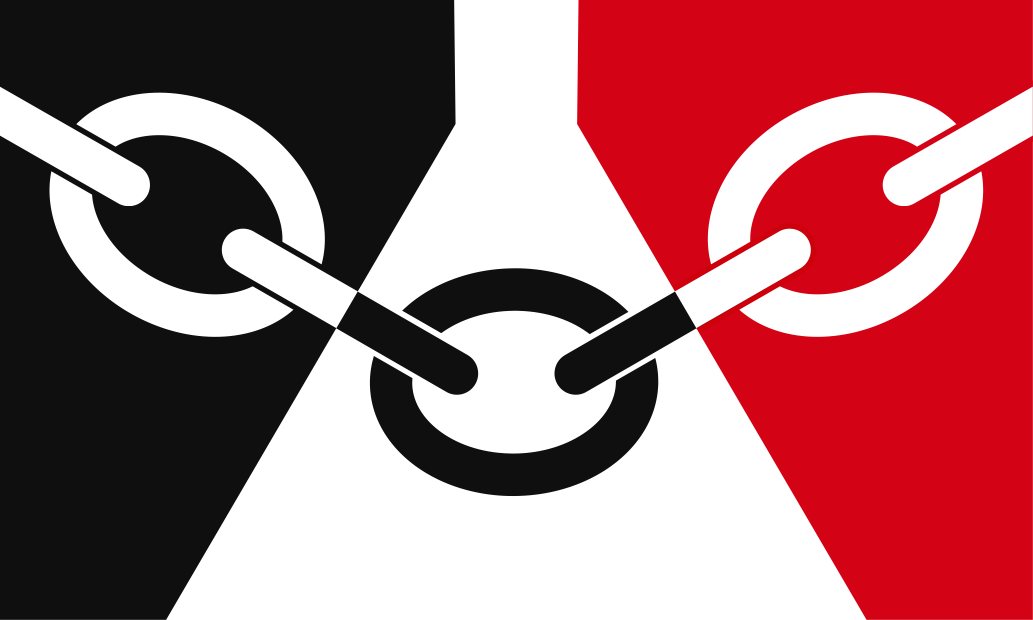
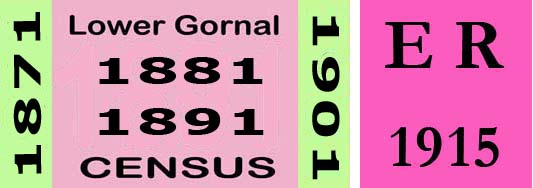 *NEW*
*NEW*
